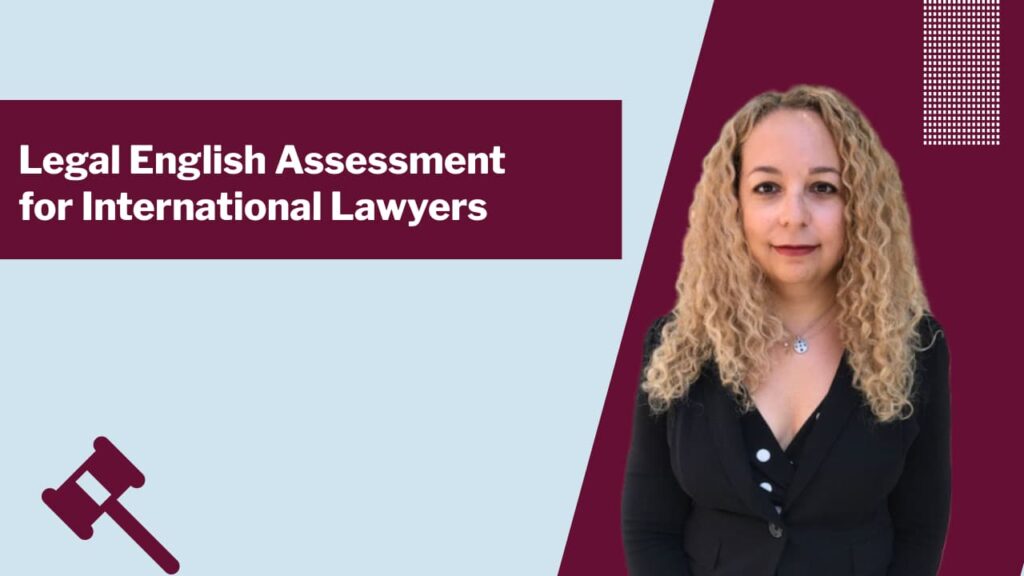
In the legal world, precision, clarity, and effective communication are paramount. Non-native English-speaking lawyers are often required to work with legal documents, clients, and colleagues from diverse linguistic backgrounds. Therefore, the ability to navigate the complexities of legal English is vital. This blog post will explain why lawyers of all backgrounds should consider taking a self-assessment of their legal English skills and how it can benefit their legal careers.
Assessing Your Legal English Proficiency: What It Includes:
A self-assessment of legal English skills involves evaluating various aspects of your language proficiency, including:
1. Reading and Comprehension
This component assesses your ability to understand complex legal texts, statutes, case law, and legal documents in English. It also gauges your familiarity with legal terminology specific to English-speaking jurisdictions.
2. Writing and Drafting
This assesses your capability to draft legal documents, such as contracts, legal opinions, or emails, in English. It evaluates your written legal English for clarity, conciseness, and grammatical accuracy.
3. Oral Communication
This portion evaluates your ability to communicate effectively in English, especially during legal meetings, negotiations and zoom calls. It considers your proficiency in using legal terminology in verbal exchanges.
4. Legal Terminology
Your knowledge and understanding of legal jargon, phrases, and terminology commonly used in English-speaking legal contexts are assessed. This component is essential for precise communication and drafting of legal documents.
Benefits of Legal English Self-Assessment
There are several compelling reasons to consider a self-assessment of your legal English skills:
1. Enhance Legal Competence
Self-assessment identifies areas where you may be falling short. By recognizing your weaknesses, you can target those specific areas for improvement. This process leads to an overall enhancement of your legal competence, making you a more effective and reliable lawyer.
2. Avoid Costly Errors
Inaccurate or imprecise legal language can lead to costly mistakes. A self-assessment helps you catch language-related errors before they have the chance to impact your clients or cases negatively.
3. Expand Your Opportunities
For non-native English-speaking lawyers, improving legal English proficiency opens doors to a wider range of career opportunities. It can lead to international assignments, cross-border transactions, and collaborations with English-speaking firms.
4. Build Client Trust
Clients often expect their lawyers to be fluent in legal terminology and to communicate clearly. A strong command of legal English can help build trust and credibility with your clients, regardless of your linguistic background.
5. Gain Competitive Advantage
In a globalized legal marketplace, those with strong legal English skills stand out. You become a more attractive candidate for prestigious international assignments, higher-profile cases, and positions in multinational corporations or law firms.
Take Action Today
Don’t wait to discover your legal English skills need improvement through a costly mistake or missed opportunity. Take the self-assessment, and if necessary, consider training with Legal Linga. Invest in your professional development, enhance your legal English proficiency, and open doors to new possibilities in the global legal arena.